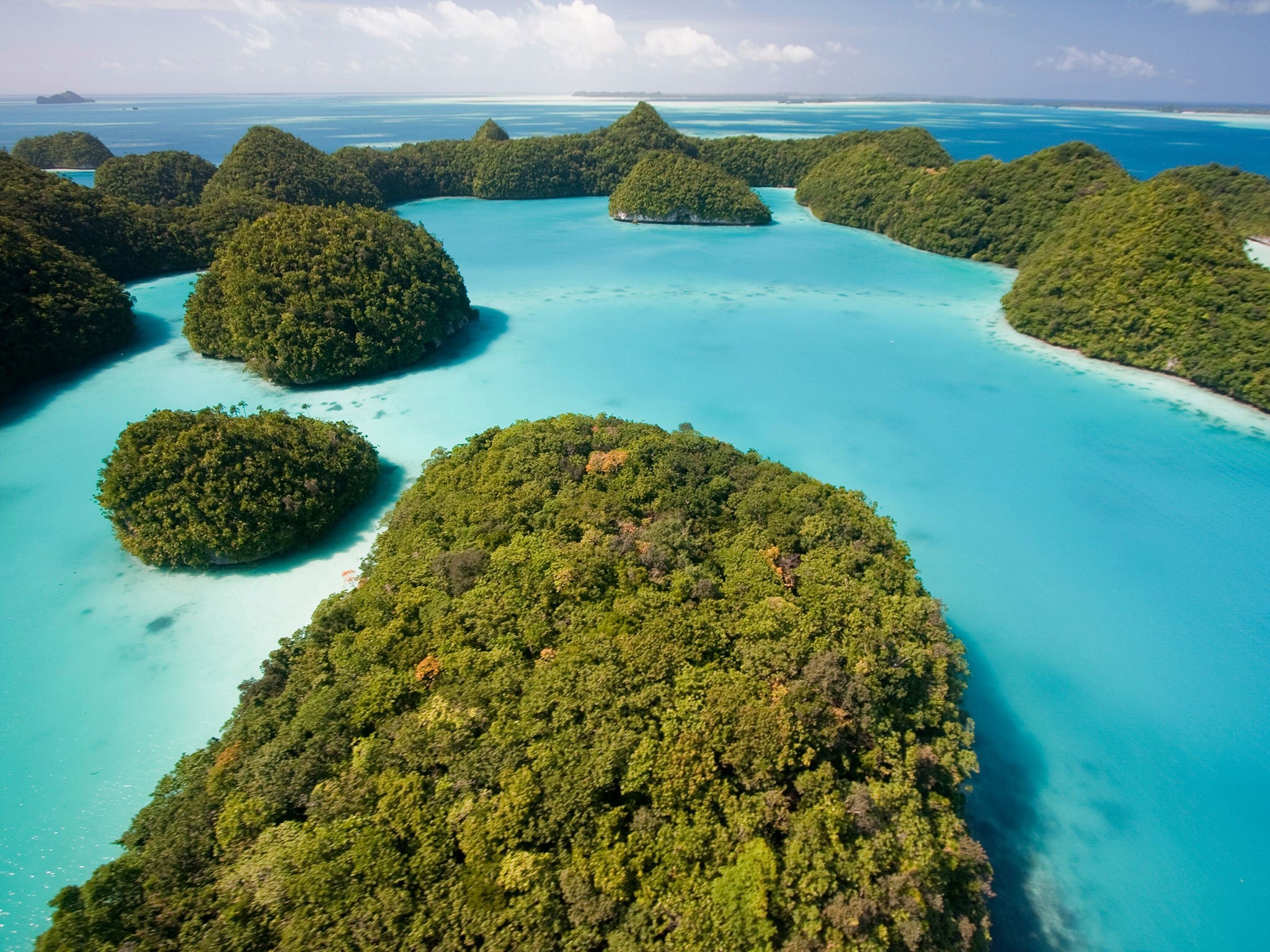Palau: on the frontline of climate change in the South Pacific
'We no longer have flowers. We had to put them in a pot and when there is high tide we move it'

To see the frontline of climate change, Tommy Remengesau, President of Palau, a small island nation in the Pacific, has to look no further than his backyard.
Due to rising sea levels, the garden his wife used keep at the back of their house now gets swamped with salt water by the high tide, he said.
“At full moon my backyard is flooded,” he said.
“We no longer have flowers. We had to put them in a pot and when there is high tide we move it,” he said in an interview at the UN Food and Agriculture Organisation’s (FAO) conference in Rome.
At its peak today, the tide is more than one foot (30cm) higher than when the house was built in 1989, Mr Remengesau said, adding he first noticed seaweed and tidal debris littering his garden one morning about four years ago.
The President’s gardening worries are emblematic of those faced by Palau and its Pacific neighbours due to global warming.
Low-lying, small islands in the Pacific are disproportionately at risk of losing land as sea level rises by an expected 10-32 inches (26-82cm) by the late 21st century, according to data from the UN.
Mr Remengesau said in the long term Palau had no other option but to move people and farms up to higher ground. Unlike other island states, Palau has some upland terrain, its highest point more than 200 metres above sea level.
But that is easier said than done, as the interior of the island is not all fertile, he said, adding the government was working with the FAO to identify locations suitable for farming and to enrich soil.
Climate change is also set to affect Palau’s waters, which could become more acidic, threatening corals and disturbing fish stocks already depleted by overfishing, he said.
Seafood is the main source of protein for Palau’s 21,000 people, according to the FAO.
To protect marine life, the government has set aside about 80 per cent of its maritime territory – equal to roughly the size of France – as a sanctuary and is encouraging locals to turn to aquaculture, such as crab and milkfish farming, Mr Remengesau said.
But climate change is a global problem that the tiny nation can not address alone, he said.
In 2016, Palau became the second country in the world, after Fiji, to ratify the Paris Climate Agreement to limit global temperature rise to “well below” 2°C.

Mr Remengesau said he was disappointed with the United States’ decision to ditch the accord. President Donald Trump also said the United States would stop contributing to the Green Climate Fund to help vulnerable countries, including Pacific States, adapt to a changing climate.
“It’s a lost opportunity really for the US to lead,” he said, adding he was glad to see the void being filled by other nations, including China, with which Palau has no formal diplomatic ties due to its support of Taiwan.
“In a way it’s good to see China take the leadership because they need to be part of the solution,” said Mr Remengesau.
Taiwan and China have tried to poach each other’s diplomatic allies ever since Taiwan’s expulsion from the United Nations in 1971, to allow formal recognition of China.
Mr Remengesau said he was open to improving relations with Beijing – which is committed to the Paris Agreement – on climate as global warming was not a partisan matter.
“I don’t look at this as some diplomatic issue, it’s a survival issue,” Mr Remengesau said.
“Whether you live in Africa, in the Caribbean or in the Pacific, we are all connected, we are all in one boat... If somebody wants to jump out of the boat that’s their option but this is a very important journey.”
On Friday, Brazil, Russia, India and China – the so-called BRICS countries – called on the G20 to push for implementation of the Paris deal despite Mr Trump’s decision to pull the United States out of it.
Reuters
Join our commenting forum
Join thought-provoking conversations, follow other Independent readers and see their replies
Comments